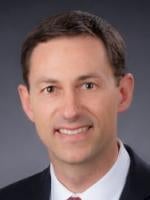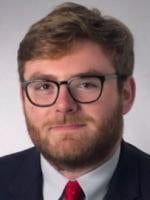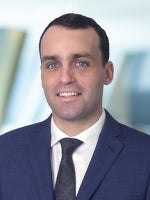A circuit split over the causation standard under the federal Anti-Kickback Statute (AKS) could grow wider after a recent Northern District of Illinois (NDIL) decision. In United States ex rel. Jeffrey Wilkerson & Larry Jackson v. Allergan Ltd., Case No. 22-CV-30130, Judge Lindsay C. Jenkins weighed in on the standard, ruling that “resulting from” in a 2010 amendment to the AKS requires “but for” causation in AKS-False Claims Act (FCA) cases. This opinion aligns with the First (2025), Sixth (2023), and Eighth (2022) Circuits, which deviated from the Third Circuit’s (2018) interpretation that “resulting from” requires some “link” between a kickback and the false claim short of but-for causation.
The Allergan opinion highlights circuit court disagreement regarding the AKS “but for” causation standard and the potential expansion of that split. The opinion also underscores the importance of this issue, as the Court provided detailed guidance as to the types of allegations it viewed as sufficient to show causation.
But-For Causation in the Seventh Circuit
In 2010, Congress amended the AKS to provide that “a claim that includes items or services resulting from [an AKS violation] constitutes a false or fraudulent claim for purposes of [the FCA].” The meaning of that simple phrase, “resulting from,” remains a divisive issue in courts across the country. While the Seventh Circuit has yet to address the 2010 amendment with respect to FCA cases, in 2024 the Court opined on the meaning of “resulting from” in Stop Illinois Health Care Fraud, LLC v. Sayeed. The Court concluded it requires “some causal nexus between the allegedly false claims and the underlying kickback violation.” Although the Seventh Circuit did not rule on what specific level of causation the AKS requires — whether “but-for causality or something less” — Sayeed proved instructive to Judge Jenkins’ decision in Allergan.
Holding in Allergan
The Relators in Allergan are former employees who allege that, during their employment at Allergan, the company “devised a scheme” to provide illegal kickbacks. These kickbacks, according to the Relators, were payments made to physicians across the country, who were hired to educate others about Allergan pharmaceutical products.
The Relators argued that because the physicians were being paid to speak about Allergan products, subsequent claims paid for those prescriptions violated the FCA. The court disagreed, noting the argument “is nothing more than the causation-less temporal standard rejected by the Seventh Circuit in Sayeed.” The court further ruled that “all that matters” for an AKS violation is a defendant’s “intent in paying the kickbacks,” not “whether any prescriptions were written as [a] result of the kickbacks.” Further referencing Sayeed, the court noted the Seventh Circuit was clear that “resulting from” requires some level of “actual causality” and agreed with the First, Sixth, and Eighth Circuits that it requires but-for causation rather than a mere link between payments and claims (as endorsed by the Third Circuit).
The court also explicitly discounted a differing Third Circuit opinion, Greenfield v. Medco Health Solutions, finding the concerns “animating the Greenfield court decision … not persuasive.” In doing so, the court highlighted that “all the other Circuits to directly address the question point in one direction — holding that ‘resulting from’ requires but-for causation for claims made under the 2010 Amendment.” After examining the text of the statute and the Seventh Circuit’s guidance in Sayeed, the Court agreed that but-for causation is the appropriate standard.
Applying that standard, the Court held that for all but a few physicians, the Relators’ claims failed because the Relators alleged only a mere correlation of “an uptick in prescriptions” and the speaker program payments. The Court explained that “Relators should present data that controls for other variables such that an increased number of prescriptions by” physicians who participated in the program “is likely attributable to Allergan’s payments.” The Court gave examples of allegations that would suffice, such as “identifying specific quid pro quos” or “comparing Speaker Bureau physicians’ prescription rates against prescription rates of doctors not receiving” Allegan payments.
Looking Ahead
Because some of the Relators’ allegations in Allergan survived the motion to dismiss, the case likely will not yet be appealed to the Seventh Circuit. However, Allergan provides a potential roadmap for arguments in the NDIL and sets the stage for another appellate decision on this issue. While Allergan falls in line with other circuit courts ruling in favor of but-for causation for AKS-premised FCA cases, a circuit split remains.
The Supreme Court declined to review the issue in 2023, but as more cases like Allergan progress, lower courts are likely to reach differing conclusions until the Supreme Court weighs in. Foley will continue to monitor developing case law and provide updates on this issue.








 />i
/>i

